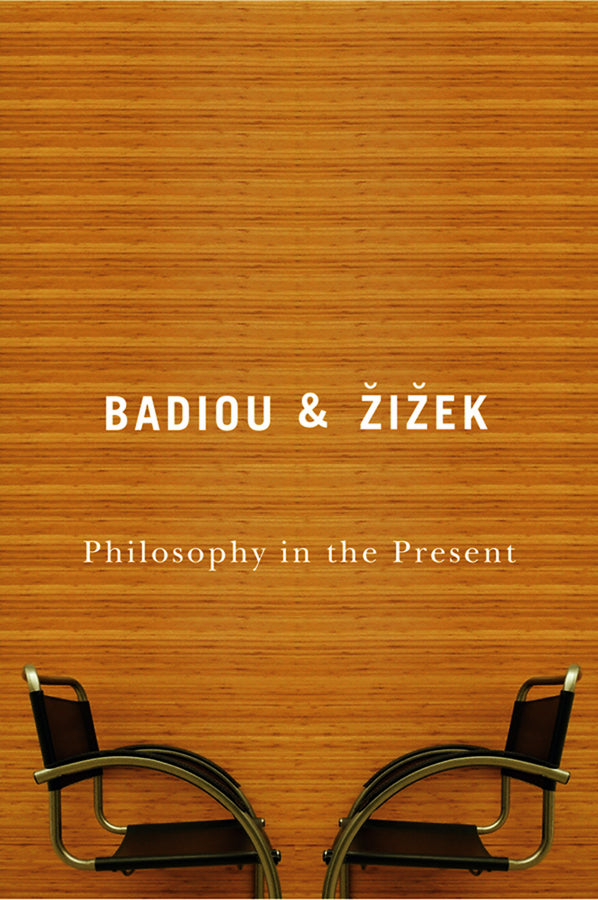Description
Explore the compelling discourse of two controversial thinkers in 'Philosophy in the Present'. This thought-provoking book, published by John Wiley & Sons in 2009, dives deep into the question: Should philosophy interfere in the world? The authors, Alain Badiou and Slavoj Žižek, present a vibrant dialogue that challenges traditional boundaries of philosophy, making it an essential read for students and enthusiasts of contemporary philosophy.
Badiou argues that philosophy is inherently about interference and commitment, breaking free from academic constraints. He posits that philosophy is an act of universality, speaking for all while embracing the strange and the new. On the other hand, Žižek asserts that philosophers must engage with pressing contemporary issues, shifting the discourse rather than merely following it. His perspective calls into question the norms of philosophical inquiry, suggesting that philosophy embodies abnormality and excess.
This book, featuring 80 pages of rich content, serves as an invitation to engage deeply with philosophical ideas while providing insights into the minds of Badiou and Žižek, two of today's most influential thinkers. Perfect for those looking to expand their understanding of philosophy's role in the modern world, this text is a must-have addition to any philosophy enthusiast's collection.
Note: Shipping for this item is free. Please allow up to 6 weeks for delivery. Once your order is placed, it cannot be cancelled. Condition: BRAND NEW. ISBN: 9780745640976.
Note: Shipping for this item is free. Please allow up to 6 weeks for delivery. Once your order is placed, it cannot be cancelled.
Condition: BRAND NEW
ISBN: 9780745640976
Year: 2009
Publisher: John Wiley & Sons (UK)
Pages: 80
Description:
Two controversial thinkers discuss a timeless but nonetheless urgent question: should philosophy interfere in the world?
Nothing less than philosophy is at stake because, according to Badiou, philosophy is nothing but interference and commitment and will not be restrained by academic discipline. Philosophy is strange and new, and yet speaks in the name of all - as Badiou shows with his theory of universality.
Similarly, Zizek believes that the philosopher must intervene, contrary to all expectations, in the key issues of the time. He can offer no direction, but this only shows that the question has been posed incorrectly: it is valid to change the terms of the debate and settle on philosophy as abnormality and excess.
At once an invitation to philosophy and an introduction to the thinking of two of the most topical and controversial philosophers writing today, this concise volume will be of great interest to students and general readers alike.
Badiou argues that philosophy is inherently about interference and commitment, breaking free from academic constraints. He posits that philosophy is an act of universality, speaking for all while embracing the strange and the new. On the other hand, Žižek asserts that philosophers must engage with pressing contemporary issues, shifting the discourse rather than merely following it. His perspective calls into question the norms of philosophical inquiry, suggesting that philosophy embodies abnormality and excess.
This book, featuring 80 pages of rich content, serves as an invitation to engage deeply with philosophical ideas while providing insights into the minds of Badiou and Žižek, two of today's most influential thinkers. Perfect for those looking to expand their understanding of philosophy's role in the modern world, this text is a must-have addition to any philosophy enthusiast's collection.
Note: Shipping for this item is free. Please allow up to 6 weeks for delivery. Once your order is placed, it cannot be cancelled. Condition: BRAND NEW. ISBN: 9780745640976.
Note: Shipping for this item is free. Please allow up to 6 weeks for delivery. Once your order is placed, it cannot be cancelled.
Condition: BRAND NEW
ISBN: 9780745640976
Year: 2009
Publisher: John Wiley & Sons (UK)
Pages: 80
Description:
Two controversial thinkers discuss a timeless but nonetheless urgent question: should philosophy interfere in the world?
Nothing less than philosophy is at stake because, according to Badiou, philosophy is nothing but interference and commitment and will not be restrained by academic discipline. Philosophy is strange and new, and yet speaks in the name of all - as Badiou shows with his theory of universality.
Similarly, Zizek believes that the philosopher must intervene, contrary to all expectations, in the key issues of the time. He can offer no direction, but this only shows that the question has been posed incorrectly: it is valid to change the terms of the debate and settle on philosophy as abnormality and excess.
At once an invitation to philosophy and an introduction to the thinking of two of the most topical and controversial philosophers writing today, this concise volume will be of great interest to students and general readers alike.

